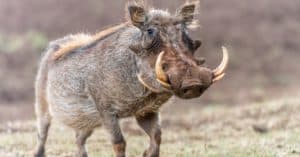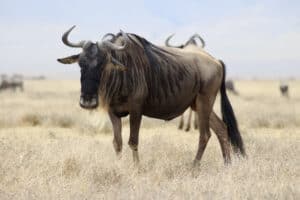Squirrels and raccoons can wreak havoc on a garden, causing substantial irritation to the gardener and destruction to the garden. These crafty creatures are notorious for their relentless foraging, digging, and nibbling. This can swiftly decimate plants in vegetable gardens and flower beds. Squirrels have a penchant for uprooting newly planted seeds and seedlings, while raccoons are known to plunder ripe produce and tear through garden beds in search of insects and grubs. Their relentless activity can leave behind a trail of uprooted plants, shredded foliage, and frustrated gardeners struggling to protect their hard-earned harvest. But fear not! You needn’t look further than your kitchen for an effective repellent that keeps these critters at bay: Garlic. It’s true. Not only does the pungent odor of garlic repel vampires, it also repels squirrels and raccoons. Continue reading to discover how this kitchen staple effectively repels raccoons and squirrels.
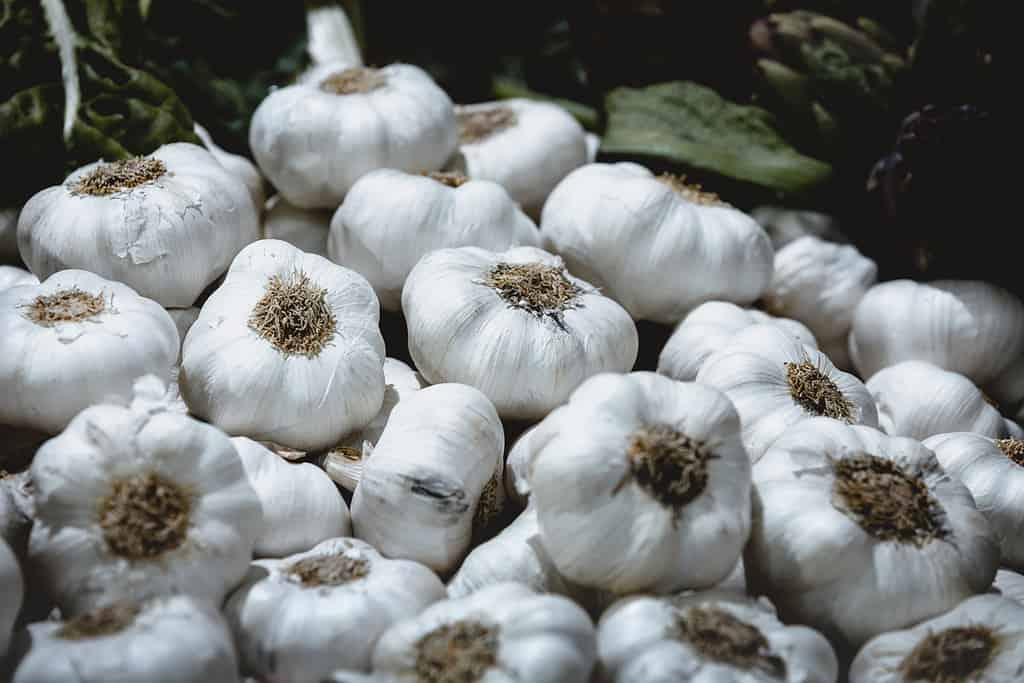
You needn’t look further than your kitchen for an effective repellent that keeps the critters at bay: garlic.
©Carl.Salisbury/Shutterstock.com
Discover the Kitchen Staple that Effectively Repels Raccoons and Squirrels: It’s Garlic!
Though it hasn’t been widely studied or researched, anecdotal reports suggest that the scent of garlic is a safe, effective, non-toxic raccoon and squirrel repellent. Many commercial raccoon and squirrel repellents contain garlic. Raccoons and squirrels have a strong sense of smell. It is a vital component of their survival. It is the principal way they find their food. Raccoons and squirrels are opportunistic omnivores, meaning they have a varied diet that includes both plant and animal matter. They are known to eat a wide range of foods, including fruits, vegetables, insects, small animals, eggs, and even human food from garbage cans.
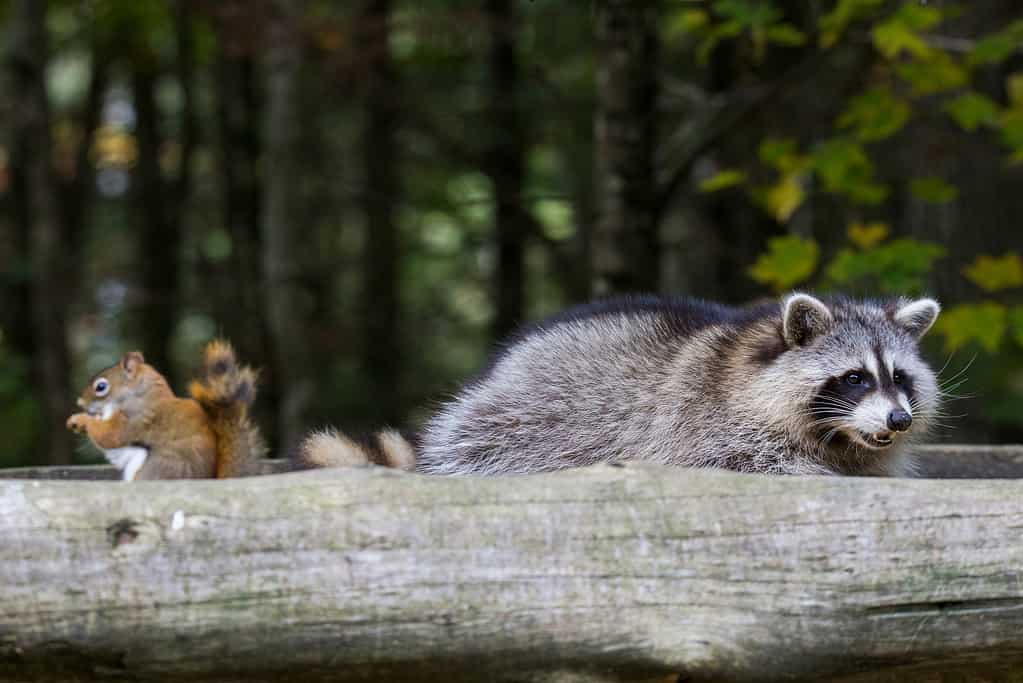
Raccoons and squirrels are opportunistic omnivores, meaning they have a varied diet that includes both plant and animal matter.
©Mircea Costina/Shutterstock.com
How Does it Work?
Garlic has a strong scent. Allicin is a natural organic compound found in garlic (Allium sativum). It is a sulfur-containing compound that lowers blood sugar, cholesterol, and blood pressure. Allicin is responsible for the characteristic pungent smell and flavor of garlic. This strong odor is a defense mechanism for the garlic plant to deter herbivores and pests. And it has been reported to work in the fight against raccoons and squirrels. The little critters do not like strong scents and will avoid them if possible. There are several methods of dispersal and treatment.

Allicin is responsible for the characteristic pungent smell and flavor of garlic.
©Christo/Shutterstock.com
Companion Planting
Gardeners strategically utilize garlic as a companion plant to actively deter squirrels and raccoons from destroying their crops. By planting garlic near susceptible crops, the pungent aroma of garlic acts as a powerful deterrent, repelling these pesky mammals from foraging and damaging the garden. The strong scent of garlic disrupts the animals’ usual foraging patterns, encouraging them to seek sustenance elsewhere. This proactive approach not only safeguards plants from destruction but also harnesses the natural properties of garlic to create a harmonious and protected garden environment.
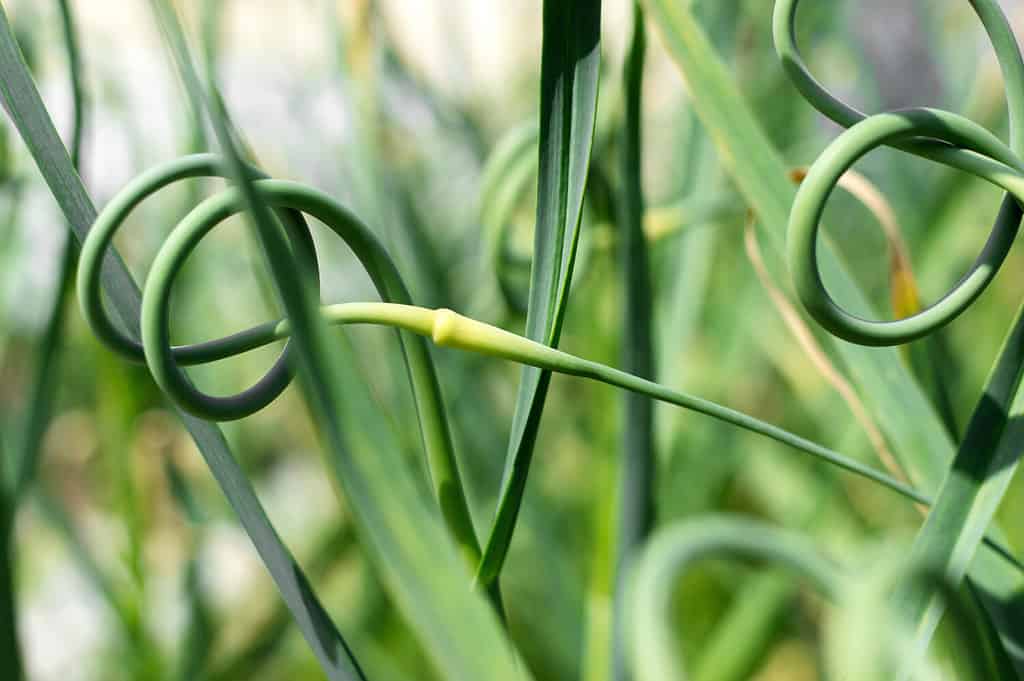
By planting garlic near susceptible crops, the pungent aroma of garlic acts as a powerful deterrent,
©Mikhail_Nau/Shutterstock.com
Discover the Kitchen Staple that Effectively Repels Raccoons and Squirrels: Garlic Spray
Create a potent spray by puréeing garlic and mixing it with water. The process involves blending fresh garlic cloves with water to extract the strong compounds responsible for garlic’s distinct aroma and potential deterrent properties. This garlic-infused solution is then strained and transferred to a spray bottle. When applied to garden plants, the spray releases the powerful scent of garlic, acting as a proactive shield against raccoons and squirrels. This method not only taps into the repellent qualities of garlic but also offers an eco-friendly alternative to chemical-based pesticides.
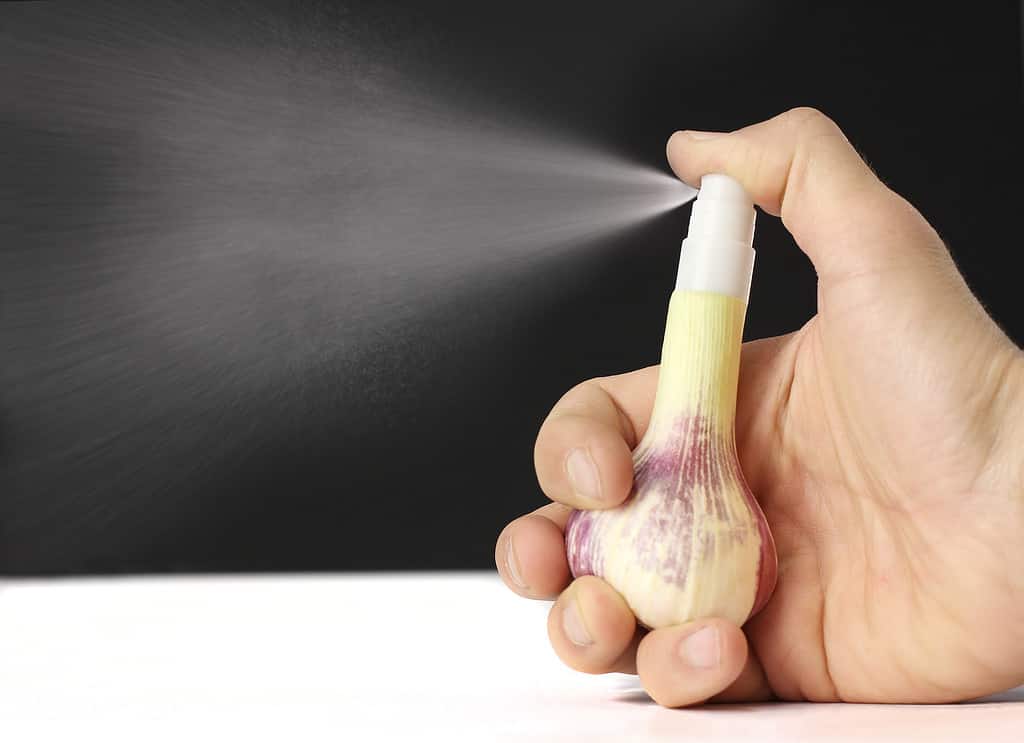
Create a potent spray by puréeing garlic and mixing it with water.
©Trofimov Denis/Shutterstock.com
Discover the Kitchen Staple that Effectively Repels Raccoons and Squirrels: Garlic Powder
Another effective strategy involves sprinkling garlic powder around garden plants as a natural deterrent against raccoons and squirrels. This method involves evenly distributing garlic powder, rich in the potent compounds found in fresh garlic, around the garden beds and plants. As the wind carries its distinct aroma, the scent of garlic permeates the air and the surrounding soil, creating an environment that pests, such as squirrels and raccoons, find unfavorable. This powerful scent disrupts their foraging patterns, encouraging them to forrage away from the repellent garden area. Employing garlic powder in this manner not only harnesses the natural repellent properties of garlic but also offers a simple and cost-effective solution to safeguarding crops from potential damage. Be aware that the garlic powder must be reapplied regularly, especially after a heavy rain.
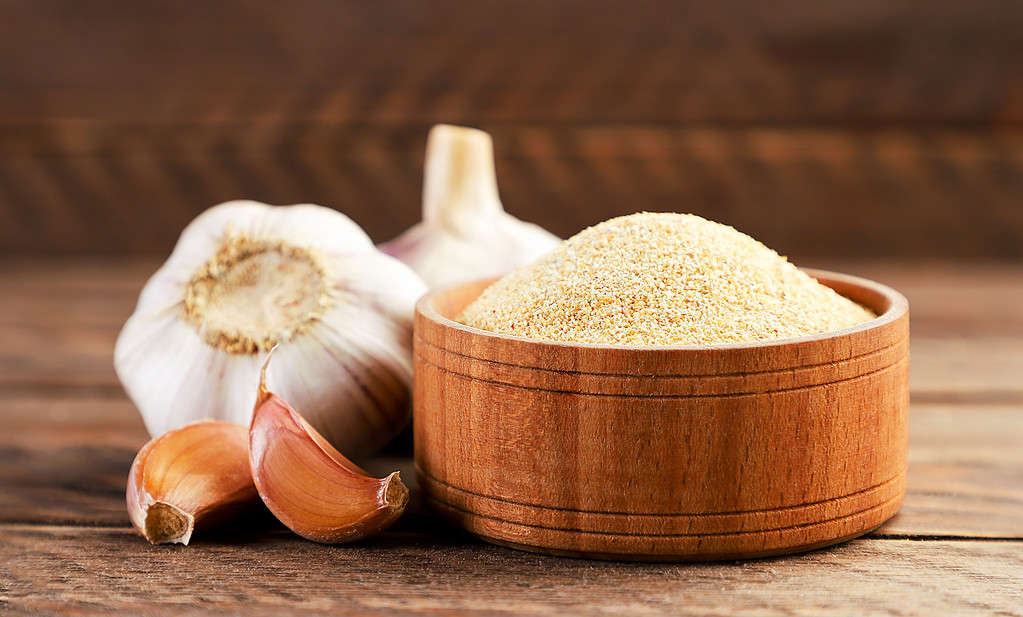
Another effective strategy involves sprinkling garlic powder around garden plants as a natural deterrent against raccoons and squirrels..
©innakreativ/Shutterstock.com
The photo featured at the top of this post is © Mircea Costina/Shutterstock.com
Thank you for reading! Have some feedback for us? Contact the AZ Animals editorial team.




